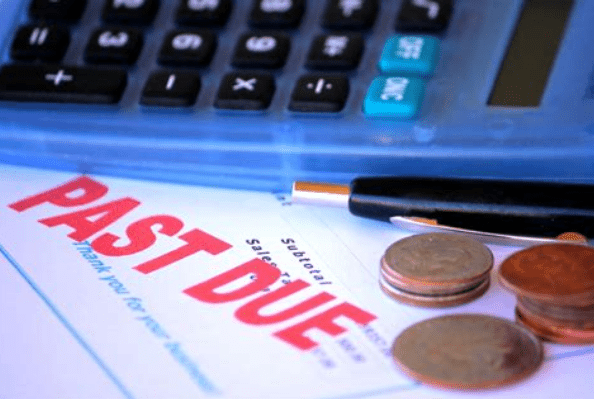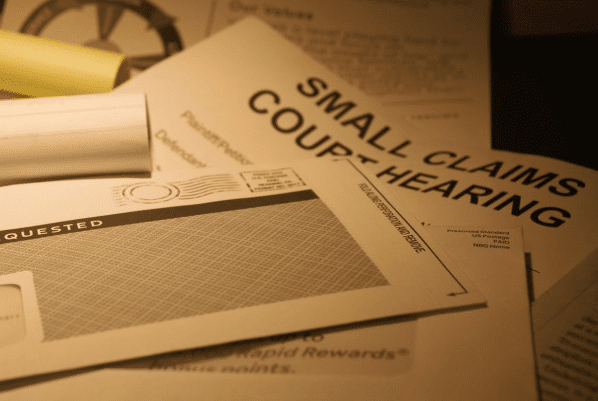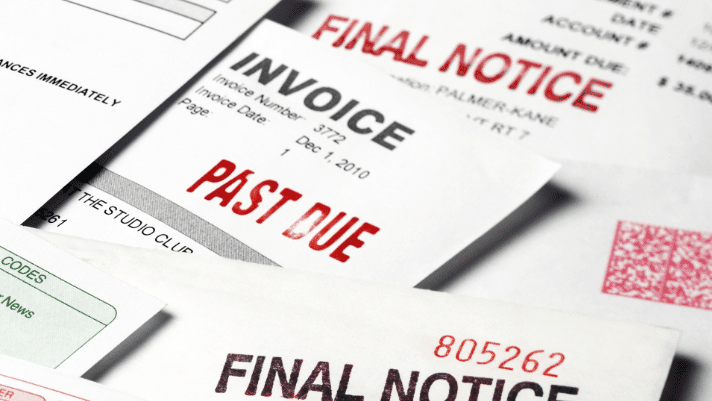In Iowa, you’ve got 20 days to respond to a debt lawsuit. Craft a written Answer addressing each claim and asserting your defenses. ZumaZip streamlines the process, guiding you through each step with ease.
Hey there! Ever had one of those days when everything’s going smoothly, and then, bam! A knock on the door, a stranger standing there, and a bunch of official-looking papers handed to you. Suddenly, your heart sinks—you’re being sued.
It’s natural to feel panicked and lose sleep over it, but take a deep breath. This article is here to help ease your worries. We’ve got all the info you need to make responding to that debt lawsuit a breeze, helping you feel less stressed and more confident. So, let’s dive in and learn how to tackle that Summons for debt collection in Iowa!
Respond to your Iowa debt lawsuit before the deadline
In Iowa, you have 20 days to respond to a debt collection lawsuit.
Iowa R. Civ. P. 1.303(1) states:
Unless otherwise provided, the defendant, respondent, or other party shall serve, and within a reasonable time thereafter file, a motion or answer within 20 days after the service of the original notice and petition upon such party.
In Iowa, you’ve got 20 days from the date of service to file your Answer. However, if the Petition was served by the secretary of state or department of transportation, you’ve got 60 days instead.
Now, here’s the important part: failing to file your Answer by the deadline could lead to a default judgment against you. If that happens, the plaintiff can take action to collect what’s owed.
But don’t worry, there’s still hope! You can file a motion with the court to set aside a default judgment if there was a mistake, you weren’t properly served, or there was fraud involved.
And if you’ve missed the deadline but a default judgment hasn’t been entered yet, file your Answer ASAP. The court might still accept it, even if it’s a few days late.
Use Iowa Answer forms to respond to your case
ZumaZip’s Answer form is the easiest way to respond to a debt collection lawsuit. ZumaZip’s software makes it simple: just respond to a few questions about your case, and it will draft and personalized Answer document that includes all the proper legal language and formatting.
If you prefer to fill out an Answer on your own, there are a few options. You can:
- Download and complete an Appearance and Answer of Defendant(s) form and file it electronically using the Iowa Judicial Branch Electronic Document Management System (EDMS) located here.
- File the Appearance and Answer of Defendant(s) form in person if you obtain an exemption to the electronic filing requirement from the court.
- Create your own Answer document.
Use these steps to respond to a debt collection case in Iowa
In Iowa, when a plaintiff initiates a lawsuit, they must serve the defendant with an Original Notice and Petition for Money Judgment. If you’ve received this, you’ve got options.
First, you can file a motion to dismiss if you believe the case should be thrown out. Otherwise, you’ll need to file an Answer.
Your Answer is your chance to tell your side of the story. Here’s how to do it:
- Respond to each claim in the Complaint.
- State any defenses you have.
- File your Answer with the court and send a copy to the plaintiff.
Simple, right? Just remember to stick to the deadlines and present your case clearly.
1. Answer each claim listed in the Complaint.
The Complaint document lists all the claims against you. It’s your responsibility to respond to each one in corresponding order. In your Answer document, reply to each claim with one of the following responses:
- Admit
- Deny
- Deny due to lack of knowledge
ZumaZip’s Answer form makes responding to each claim fast and easy.
On eForm 3.11 you can check a box denying, admitting, or partially admitting the claim. If you are preparing your own Answer, addressing the issues of the Petition can be as simple as stating that you “deny the claims.” Since the plaintiff has the burden of proving his claims, he must produce evidence at trial to prove that he has the right to sue you and that you owe the amount he claims.
You also have the option to admit certain allegations and deny others. For example, you may agree that you entered into a lease with the plaintiff but deny that you owe him any money. If you go this route, you must make sure that you address every allegation in the Petition. If the plaintiff has listed the allegations in numbered paragraphs, address each paragraph separately. For example, “I deny the allegations contained in paragraph 10 of the complaint.”
You should also list your defenses. These are the reasons why the plaintiff should not be able to collect the money he is suing for. We’ll review potential defenses next.
2. Assert your affirmative defenses
Affirmative defenses are basically a list of reasons why you believe the plaintiff should not win the case. In Iowa, you must clearly list each affirmative defense that you have in your Answer. If you do not, you risk losing the right to raise the defense at trial.
The following is a list of common defenses under Iowa debt collection laws. Keep in mind that every case is different and that not all defenses will apply to your case. There may also be defenses available to you that are not listed below. Be sure to explore all potential affirmative defenses before you file your Answer.
- Improper service. The plaintiff must serve the Original Notice and Petition on you using the procedures set forth in Iowa debt collection laws. If you are not properly served the case can be dismissed.
- The Iowa debt collection statute of limitations has expired. Under Iowa debt collection laws, a plaintiff must sue you within a set amount of time. If he or she fails to file a complaint against you before the end of that period, then there is no standing to bring the case against you. He or she loses the right to sue you forever.
- You do not owe the plaintiff any money. This defense is used if you did owe the plaintiff money but have since paid all or some of the balance. If you have paid it all, the case will be dismissed. If you paid part, the plaintiff will have to prove that there is still money owed to him.
- Debt was discharged in bankruptcy. It is not uncommon for creditors to file suit following a bankruptcy discharge. While against the law, it unfortunately happens all the time. If the debt was listed in your bankruptcy case and you received a discharge, then the plaintiff cannot sue you.
- The debt is unconscionable. This means that the plaintiff is asking for an amount of money that is excessive compared to the original debt amount or that the original agreement you entered into was entirely one-sided.
- Unjust enrichment. This defense is available where awarding the plaintiff the amount claimed would result in what amounts to a financial windfall. For example, the plaintiff may be claiming an excessive level of interest on an outstanding debt.
Make the right defense the right way with ZumaZip.
3. File the Answer with the court, and send a copy to the plaintiff
Your Answer must be filed electronically using the Iowa Judicial Branch Electronic Document Management System (EDMS) located here. If you wish to file the Answer in person at the courthouse, you must obtain permission from the court. For instance, you may not have access to a computer or the internet, in which case the court should approve manually filing your Answer.
ZumaZip can file an Answer for you in all 50 states.
If you file your Answer electronically, it will automatically be served on the attorney for the plaintiff. If you file it in-person you will be required to serve the plaintiff’s lawyer yourself.
Once you have filed you will receive a notice from the court giving you important information about the first hearing and other steps.
In addition to your Answer you may also file:
- a Counterclaim (eForm 3.13) against the plaintiff (i.e., the plaintiff owes you money)
- a Cross-Claim (eForm 3.14) against another defendant (i.e., another defendant named in the case owes you money)
- a Petition against a party not named in the case that you believe is responsible for the plaintiff’s claim (eForm 3.7)
- an Affidavit of Property Exempt from Execution (eForm 3.21) to protect your assets when the plaintiff attempts to enforce the judgment
Example: Meet Nina. She’s just been hit with a lawsuit from Midland Credit Management, claiming she owes $4,000 in Iowa. Nina knows she doesn’t owe that money, so she decides to fight back.
Using ZumaZip, Nina files her Answer to the lawsuit within Iowa’s 20-day deadline. In her Answer, she denies each claim and explains her defenses, like the fact that she already paid off the debt.
Thanks to ZumaZip’s electronic filing, Nina doesn’t even have to leave her house to take action. And after a few weeks, she gets the news she’s been hoping for—Midland Credit Management is dropping the case.
With ZumaZip by her side, Nina can breathe easy knowing she stood up for herself and won.
Check the Iowa statute of limitations on debt
To file a lawsuit against a debtor for an unpaid debt in Iowa, the creditor must do so before the deadline set by Iowa’s statute of limitations for debt collection, governed by Iowa Code Chapter 614.
In Iowa, the statute of limitations for an unwritten contract is five years. This means that the statute of limitations on credit card debt is five years in Iowa. On the other hand, the statute of limitations for written contracts is ten years in Iowa.
If the creditor is unable to provide a copy of the written agreement, the Iowa statute of limitations is five years based on an oral contract. If the debtor signed a written agreement, such as a promissory note, and ceased making payments, the creditor has ten years from the date of the agreement to file a lawsuit in Iowa.
The table below further outlines the statute of limitations on different types of debt in Iowa:
| Debt Type | Deadline |
|---|---|
| Credit Card | 5 years |
| Oral contract | 5 years |
| Unwritten contract | 5 years |
| Written contract | 10 years |
| Judgment | 10 years |
| Findlaw |
Settle your debt in Iowa before going to court
Maybe you know that you owe the debt. If this is the case, you might be wondering if debt settlement is a good option for you.
If you’ve been sued for debt, you can reach out to your creditors or debt collectors at any stage of the lawsuit to discuss debt settlement. Debt settlement is the process by which a consumer, like you, settles an outstanding debt for an amount that is less than the full amount owed.
ZumaZip Settle, powered by ZumaZip, makes the debt settlement process simple.
As a tech-based approach to debt settlement, ZumaZip Settle’s software can help you send and receive settlement offers until an agreement is reached. Then, it helps manage your documentation of the settlement and transfers your payment to the creditor or debt collector, keeping your financial information private and secure.
Iowa Debt Collection Laws: What can you do when a process server for a debt collection lawsuit is harassing you in Iowa?
Unfortunately, it happens all the time. Creditors, collection agencies, and attorneys can be relentless when trying to collect a debt from you.
Both the Iowa Debt Collection Practices Act and the federal Fair Debt Collection Practices Act offer you important rights and protections. For instance, collection agencies must follow certain procedures when attempting to collect a debt from you. They cannot:
- Threaten violence against you
- Contact family or friends to discuss your debt
- Imply that they work for a law enforcement, government, or credit reporting agency
- Misrepresent the amount of your debt
- Call you in the middle of the night
- Contact you if you are represented by an attorney
- Contact you after you have informed them in writing that you don’t want to be contacted
If you think a debt collector has been violating the law, contact an attorney or file a complaint with one of the following agencies:
Office of the Attorney General of Iowa
Hoover State Office Building
1305 E. Walnut Street
Des Moines, IA 50319
515-281-5926
www.iowaattorneygeneral.gov
Federal Trade Commission
Consumer Response Center
Washington, DC 20508
1-877-382-4357
www.ftc.gov
Iowa legal aid organizations can help you
If you need help with your case but can’t afford a lawyer, you may be eligible to receive free or low-cost legal services from:
Iowa Legal Aid Society
1111 Ninth Street, Suite 230, Des Moines, IA 50314
www.iowalegalaid.org/
1-800-532-1275
Key Takeaways
Key Takeaways
So, to sum it up, here’s what you need to know about responding to a summons for debt collection in Iowa:
- Deadline: You have 20 days to respond.
- Forms: Use ZumaZip’s Answer form or Iowa’s Appearance and Answer of Defendant(s) form.
- Steps: a. Address each claim in the Petition. b. Assert your affirmative defenses. c. File the Answer with the court and send a copy to the plaintiff.
Remember, Iowa’s statute of limitations on debt is five years for credit cards, oral contracts, and unwritten contracts, and ten years for written contracts. Be sure to check the statute of limitations on your debt before taking any action.
Lastly, you can settle your Iowa debts for less before going to court. ZumaZip Settle, powered by ZumaZip, provides an easy way to do this.
What is ZumaZip?
ZumaZip is a convenient solution designed to streamline your response to a debt collection lawsuit. Here’s a breakdown of what you can expect when you use ZumaZip:
Firstly, you’ll access our user-friendly web application, which guides you through the process step by step. You’ll be prompted to answer a series of questions related to your specific situation. Once you’ve completed the questionnaire, you have the option to either print out the finalized forms and mail them to the appropriate courts yourself, or you can opt to utilize ZumaZip’s services to file them on your behalf. Additionally, if you choose this option, an attorney will review your document for added peace of mind.
If you’re seeking guidance on how to effectively respond to a debt collection lawsuit, ZumaZip can provide the assistance you need. Feel free to explore our FAQs for more information on what ZumaZip has to offer.
What if I haven’t been sued yet?
If you’ve only received a collections notice, but not a lawsuit, the best way to respond is with a Debt Validation Letter. When a debt collector contacts you in any way, whether it’s by phone or mail, you can respond by formally requesting a debt validation with a Debt Validation Letter . This letter notifies the collector that you dispute the debt and forces them to provide proof you owe the debt. They can’t call you or continue collecting until they provide validation of the debt. This flowchart shows how you can use a Debt Validation Letter to win.
Get started with a Debt Validation Letter here.
How to Answer a Summons for debt collection in all 50 states
Here’s a list of guides on how to respond to a debt collection lawsuit in each state:
- Alabama
- Alaska
- Arizona
- Arkansas
- California
- Colorado
- Connecticut
- Delaware
- Florida
- Georgia
- Hawaii
- Idaho
- Illinois
- Indiana
- Iowa
- Kansas
- Kentucky
- Louisiana
- Maine
- Maryland
- Massachusetts
- Michigan
- Minnesota
- Mississippi
- Missouri
- Montana
- Nebraska
- Nevada
- New Hampshire
- New Jersey
- New Mexico
- New York
- North Carolina
- North Dakota
- Ohio
- Oklahoma
- Oregon
- Pennsylvania
- Rhode Island
- South Carolina
- South Dakota
- Tennessee
- Texas
- Utah
- Vermont; Vermont (Small Claims court)
- Virginia
- Washington
- West Virginia
- Wisconsin
- Wyoming
Guides on how to beat every debt collector
Hey there! Facing off against a debt collector can feel like a daunting challenge, but fear not! We’re here to help you navigate through it all with our handy guides designed to assist you in beating every debt collector you encounter. Whether you’re facing a new lawsuit or dealing with a persistent collector, we’ve got your back. Stay positive, stay informed, and let’s tackle this together!
- Absolute Resolutions Investments LLC
- Accredited Collection Services
- Alliance One
- Amcol Clmbia
- American Recovery Service
- Asset Acceptance LLC
- Asset Recovery Solutions
- Associated Credit Services
- Autovest LLC
- Cach LLC
- Cavalry SPV I LLC
- Cerastes LLC
- Colinfobur
- Covington Credit
- Crown Asset Management
- CTC Debt Collector
- Cypress Financial Recoveries
- Delanor Kemper & Associates
- Eagle Loan of Ohio
- Educap
- Estate Information Services
- FIA Card Services
- Forster & Garbus
- Freshview Solutions
- Fulton Friedman & Gullace LLP
- Harvest Credit Management
- Howard Lee Schiff
- Hudson & Keyse LLC
- Integras Capital Recovery LLC
- Javitch Block
- Jefferson Capital Systems LLC
- LVNV Funding
- Mannbracken
- Mariner Finance
- Medicredit
- Michael J Adams PC
- Michael J Scott
- Midland Funding LLC
- Mullooly, Jeffrey, Rooney & Flynn
- Mountain Land Collections
- MRS Associates
- National Collegiate Trust
- Nationstar Foreclosure
- Northstar Capital Acquisition
- NCEP LLC
- NRC Collection Agency
- OneMain Financial
- Palisades Collection LLC
- Pallida LLC
- Paragon Revenue Group
- Pinnacle Collections Agency
- PMAB LLC
- Portfolio Recovery Associates
- Provest Law
- PYOD LLC
- Reunion Student Loan Finance Corporation
- Revenue Group
- Regents and Associates
- RSIEH
- Salander Enterprises LLC
- Second Round Sub LLC
- Security Credit Services
- Sherman Financial Group
- Suttell and Hammer
- T-Mobile
- Transworld Systems
- Tulsa Teachers Credit Union
- UCB Collection
- Velo Law Office
- Velocity Investments
- Waypoint Resource Group
- Weinberg and Associates
- Wolpoff & Abramson
Settle your medical debt
Having a health challenge is stressful, but dealing medical debt on top of it is overwhelming. Here are some resources on how to manage medical debt.
- Am I Responsible for My Spouse’s Medical Debt?
- Do I Need a Lawyer for Medical Bills?
- Do I Need a Lawyer to Fight Medical Bill Debt?
- Does Bankruptcy Clear Medical Debt?
- How Much Do Collection Agencies Pay for Medical Debt?
- How to Find Medical Debt Forgiveness Programs
- Is There a Statute of Limitations on Medical Bills?
- Medical Debt Statute of Limitations by State
- Summoned to Court for Medical Bills — What Do I Do?
- Summoned to Court for Medical Bills? What to Do Next
Stop calls from Debt Collectors
Do you keep getting calls from an unknown number, only to realize that it’s a debt collector on the other line? If you’ve been called by any of the following numbers, chances are you have collectors coming after you, and we’ll tell you how to stop them.

































